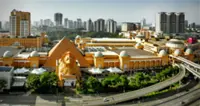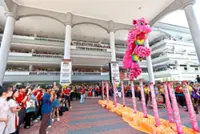WE can ensure sustainable development even without having to change the curriculum.
There is, however, an urgent need to transform the way educators apply their pedagogical strategies at primary, secondary and higher education levels to create more critical thinkers, problem solvers, and individuals who are more compassionate, and sensitive to cultures around the world, said United Nations (UN) Sustainable Development Solutions Network (SDSN) Asia director for education studies, Karen Chand.





